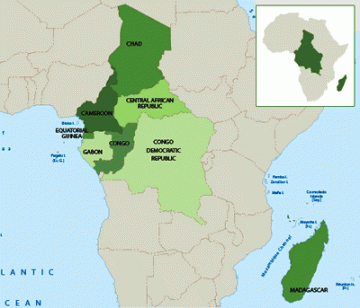Central Africa leaves Property Investors jittery

Central Africa’s organised property market has been slow to develop and the listed part of the sector has a long way to go before investment enters from other countries, reports Ortneil Kutama, Africa Property News media director.
In an intreview with Africa Property News.com, Jackie van Niekerk, the managing director of Pivotal Property Fund in South Africa says Rwanda which tends to be seen as part of East Africa, stands out but otherwise Central Africa is not ready for listed property investment from SA and elsewhere.
“I think it will still take some time for countries in that region’s property markets to develop. Rwanda is fantastic and we could look there later but right now we are focussing on other parts of the continent,” she says.
The thing with Rwanda is that post the 1994 genocide, all land is owned by the state there and developers have to get permission to build on land they don’t own. It will take time for Rwanda’s commercial property market to liberalise.
It may work better for companies themselves within central Africa itself to develop listed property assets and perhaps partner from companies from other countries, in order to kick-start their sectors. It is possible that American money instead of South African money could go into Central Africa.
A challenge would be interpreting the laws and working within the protocols of the various companies in the region. They would also need to return money to shareholders in preferably US dollars.
“You want to be paying your shareholders in dollars as opposed to weaker currencies. This is something companies should try to do when we investing or at least to hedge against currency risk,” Evan Robins of Old Mutual Investment Group says.
Jay Padayatchi of Meago Asset Managers says he believes African remains a long term play but that currently with a persistently weak rand which many African currencies tend to follow, it is unlikely that many outside funds or private equity groups will attempt to develop in parts of Africa where they have not operated before.
Countries such as Nigeria and Ghana still offer strong consumer demand for things such as shopping centres and business demand for offices. It is more likely that established Nigeria, Ghanaian and South African funds will focus on these markets and also on Zambia and Kenya than try start from scratch elsewhere.
Democratic Republic of Congo is the most populous country in the central African region and property developers expect its legal and political structures to synchronise eventually in order to build up the country’s real estate sector but it is difficult to say when. Unfortunately the country does not hold regular elections and corruption and civil war tends to retard the economy and real estate sector.
Despite the new Constitution there, protection of property rights is weak. There are also problems faced by the pygmy communities. Now that land is privately owned, based on land titles, the pygmies, who formerly owned land collectively, are left landless. This does not encourage investors from other countries to dare consider investing in The Democratic Republic of the Congo.
The Central African Republic is also too marred by violence and political instability to encourage property investment from strong performing African property investors. Burundi meanwhile only has 10-million people and is at risk of returning to civil war, according to the United Nations. Burundi is under the rule of the Tutsi, a tribe. This tribe is in the minority, accounting for about 14% of the population. This causes friction and unhappiness.
Economic uncertainty and security concerns continue to discourage foreign investors. The government has a history of expropriating private property.
Ultimately, central Africa has years and work to go before it will attract investor money from other countries for real estate. Real estate investment trust legislation also looks far away.
Rwanda, the most politically stable country in the region, with a growing economy will likely be the first to buck these negative trends. Rwandans should develop their sector themselves and once South African investors have had successes on Nigeria, Ghana and Kenya, they will likely invest in Rwanda.
Most Popular
Big sub-Saharan African economies to get potent lift this year
Sub-Saharan Africa’s biggest economies will benefit from a global upswing this year - as long as the U.S.-China tariff dispute does not disturb improving global trade flows, a Reuters poll ... Full story







![Burundi’s real estate market has been stifled by unrest in the country for decades. Currently rebels in the country are trying to oust the country’s President Pierre Nkurunziza [PIcture: Reuters] Burundi’s real estate market has been stifled by unrest in the country for decades. Currently rebels in the country are trying to oust the country’s President Pierre Nkurunziza [PIcture: Reuters]](https://www.africapropertynews.com/thumbnail.php?file=articles/Burundi_Property_Market_152027786.jpg&size=summary_large)



